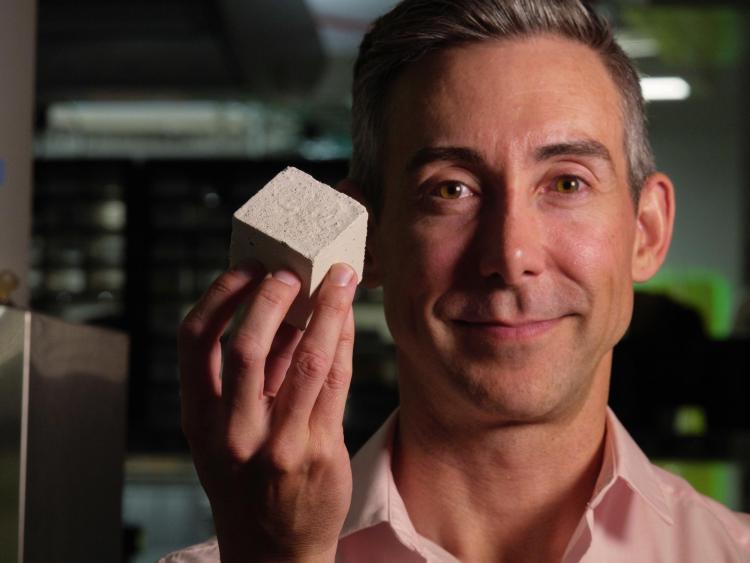CU Boulder engineer selected as 2023 Schmidt Science Polymath

Srubar was chosen from more than 58 applicants who outlined research ideas in STEM fields that represent a substantive shift from their current portfolio. He and the other “polymaths” will receive $500,000 a year for up to five years to help support their research.
“I am beyond humbled and grateful for being selected to receive the Schmidt Science Polymaths Award. It truly is a career-defining honor,” Srubar said. “The award not only provides financial support for my work, but also enables me to approach it with an unencumbered, creative freedom to pursue high-risk, high-reward ideas. It’s such an incredible opportunity.”
In Srubar’s Living Materials Lab, his team develops innovative building materials, including a concrete-like material made from algae that can self-heal and is more sustainable than traditional concrete manufacturing.
With this new grant, Srubar is looking to further redefine the boundaries of living architecture — both on Earth and beyond.
“I am specifically interested in species of photosynthetic algae and other multifunctional, symbiotic organisms and their abilities to help us define and establish new paradigms for next-generation living — and carbon sequestering — materials for terrestrial and extraterrestrial built environments,” he wrote in his proposal.
Stuart Feldman, chief scientist of Schmidt Futures, said the program brings together a group of determined researchers, each pursuing new research directions to tackle pressing global challenges.
"From improving brain imaging and addressing gender bias in medical research, to developing sustainable construction materials and advancing regenerative agriculture, these Polymaths' interdisciplinary work is poised to drive transformative advancements in diverse fields,” he said.
About the Polymath Program
The Polymath Program is designed to push the boundaries of scientific and disciplinary limits by promoting the exploration of fresh methodologies and approaches in STEM to unlock breakthroughs and expedite progress in scientific discoveries. In receiving this award, the cohort receives support as they boldly transition from their established fields and enter into new disciplines or methodologies, bringing with them their expertise to conduct pioneering research. Through this model, the Polymaths’ work plays a vital role in advancing knowledge, fostering innovation, and exploring emerging technologies to test unconventional theories.
About Schmidt Futures
Founded by Eric and Wendy Schmidt, Schmidt Futures is a philanthropic initiative that finds and connects talented people across fields, generations and geographies to harness their collective skills for public benefit.

